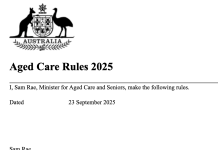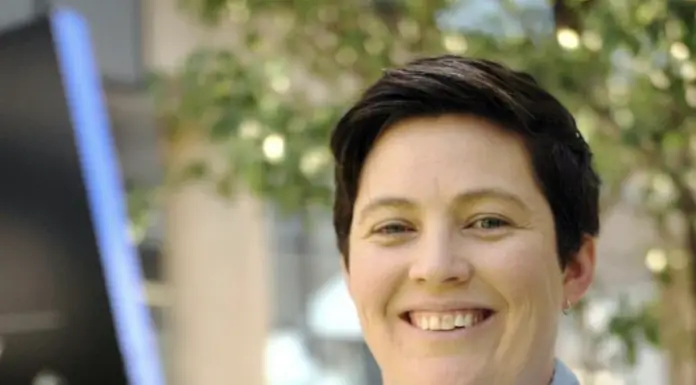Five Good Friends was awarded Highly Commended in the 2024 Future of Ageing Awards for Service Transformation by upskilling 686 workers through an innovative microcredential program, addressing workforce shortages and evolving care needs. Results were unveiled at a presentation dinner in Sydney on August 29, 2024…To view all of the winners…
As Australia’s aged population continues to grow, the aged care sector faces a dual challenge: a shortage of skilled workers and an increasing need for individualised, high-quality care delivered in the home. Five Good Friends (FGF), a home care provider dedicated to relationship-focused care, recognised that traditional workforce models and training pathways were too slow and inflexible to keep pace with clients’ evolving care needs.
In response, FGF launched an innovative microcredentialing program in 2022, transforming how its workforce is trained and deployed. Instead of relying solely on lengthy certificate-level training, the program offers short, targeted courses that upskill Helpers in specific areas, such as personal care and mobility assistance, based on the functional needs of clients. The approach is grounded in practical, evidence-based training aligned with the Australian Skills Quality Authority (ASQA) and the Barthel Index – a 10-item scale that measures a person’s ability to perform activities of daily living, with a higher score for greater independence.
Since its launch, the program has upskilled 686 Helpers – 38% of FGF’s contract workforce – demonstrating strong engagement, improved care continuity, reduced training costs and timeframes, and better retention of skilled workers. The program is a sector-leading example of scalable, inclusive workforce transformation. (Scalability is a key aspect of the awards judging criteria)
Why was it developed?
The aged care sector is facing a severe and growing workforce shortage. The Royal Commission into Aged Care Quality and Safety projected a need for 130,000 additional full-time equivalent workers by 2050, and only two-thirds of home care workers currently hold a Certificate III qualification.
At FGF, 68% of services delivered do not require formal qualifications but depend on empathy, communication, and commitment to care. This insight inspired FGF to look beyond traditional education pathways. After recruiting over 700 Helpers from industries like hospitality and retail during COVID-19, FGF identified gaps in skills necessary for higher-level support, such as showering and mobility assistance.
The challenge was twofold: How to upskill these new Helpers rapidly and cost-effectively, and how to ensure Members received consistent, personalised care without being introduced to a new Helper every time their care needs evolved. Micro-credentialing emerged as the ideal solution.
2024 Future of Ageing Awards judge
“Unique solution to building skils sets of staff, microcredentialling”
How it works
The program focuses on breaking down complex training into manageable, skill-specific courses with three levels of support: Standby, Partial, and Full Assistance. For example:
• Showering & Bathing:
• Standby Assistance: Help with setting up equipment.
• Partial Assistance: Support with hard-to-reach areas.
• Full Assistance: Complete hygiene care training.
• Mobility Assistance:
• Standby: Verbal prompting and supervision.
• Partial: Hands-on physical support.
• Full: Support with complex mobility aids.
Helpers access the courses via LearnUpon, a digital learning management system featuring video, audio, and written content. Each level includes knowledge assessments, and Full Assistance levels include in-person, practical evaluations with Training Facilitators to ensure skill application is safe and effective.
Training content is underpinned by CHCCCS031 Provide Individualised Support, and aligns with ASQA’s Principles of Assessment and Rules of Evidence.
Evidence of success
FGF’s micro-credentialing program has delivered outstanding results:
• 686 Helpers upskilled across personal care and mobility support.
• Training times reduced from 61 days to as little as 8 days.
• Training costs dropped from $360 to $41 per Helper.
• Helper attrition reduced from 4.3% to just 1.1%.
Feedback has been overwhelmingly positive. Across both courses, 94% or more of participants agreed or strongly agreed that they gained knowledge and confidence in their new skills. Many expressed appreciation for the program’s clarity, flexibility, and relevance.
This project demonstrates how innovation, inclusivity, and data-driven training design can solve sector-wide challenges. By focusing on flexibility, relevance, and person-centred demand, FGF has created a replicable, scalable model that balances operational efficiency with improved continuity of care and workforce empowerment.
Five Good Friends was a presenter at the 2024 Future of Ageing Awards.











